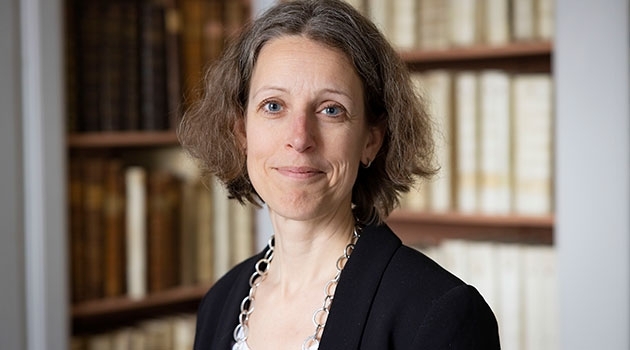Can democracy solve the climate crisis?
Hello Linda Wedlin, organisor and moderator of a panel discussion during Almedalen Week with the theme ‘What knowledge and what kind of democracy is needed for a successful climate transition?’ What are you going to be discussing?
“The environmental debate has sometimes criticised democratic principles for being too slow. At the same time, there is criticism that there is no time to produce the documentation that democratic processes require. We will start with these two criticisms and discuss what is really needed for us to be able to make decisions and cope with rapid climate change. Can democracy manage this? And do we have all the knowledge we need?”
Would you say that democracy is too slow a tool to solve the climate crisis?
“No, I wouldn’t say that. Rather I believe we need to discuss what type of democratic processes we need and the ways in which they are important. Perhaps they need to be amended or practised in a different way.”
Who are you targeting with this seminar?
“We want to open up a discussion about knowledge and the University’s role in relation to democractic processes. We hope that it will attract an audience that is interested in the University, democracy, and major social issues such as the environment.”
Why is this an important discussion to have today?
“It may not be difficult to justify the importance of the climate issue, but I feel it is also important to discuss the components of knowledge and democracy. What role should science and scientific knowledge play in different types of decision-making? This is something that has become relevant in connection with Covid, for example. Our set of rules is not always the same as those of politicians, and they don’t always match up.”
Do you mean that science is not always listened to?
“This could be the case. However, I feel it could be due to the fact that the scientific discussion does not follow the same logic as the political one. The decision-makers and politicians want answers, and ideally fast ones. Science seldom yields immediate answers and it is this clash that I believe can create a problem. After all, we want to have a science-based decision-making process, but then we need to be realistic about what expectations we have and what knowledge we are using as a basis for our decisions.”
What do you hope to get out of participating in Almedalen Week?
“The research programme ‘Democracy and Higher Education’ is arranging the seminar, and our ambition is to stimulate a general discussion about these issues. Quite simply, we want to show that issues concerning the relationship between democratic processes, knowledge and science are relevant in many different contexts, for example the environment.”
Sandra Gunnarsson
What knowledge and what kind of democracy is needed for a successful climate transition?
The discussion about sustainability raises the question as to what type of knowledge and what kinds of decision are actually needed to ensure we successfully make the climate transition. Which democratic principles are important and what knowledge is needed to take democratic decisions in relation to the climate issue? All of this will be discussed by a panel including active climate debaters, researchers and students, including Maria Wetterstrand, CEO of Miltton Purpose and former Swedish Green Party spokesperson, Sofia Näsström, Professor of Political Science at Uppsala University and Lovisa Håkansson, teaching assistant at the Unit for Academic Teaching and Learning at Uppsala University.
Time: Tuesday 5 July, 12:15-13:00
Venue: B Building, Uppsala University, Cramérgatan 3 main entrance, B51

